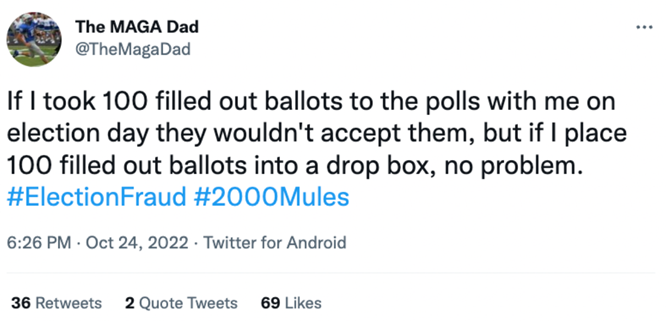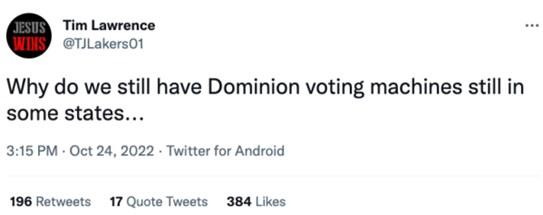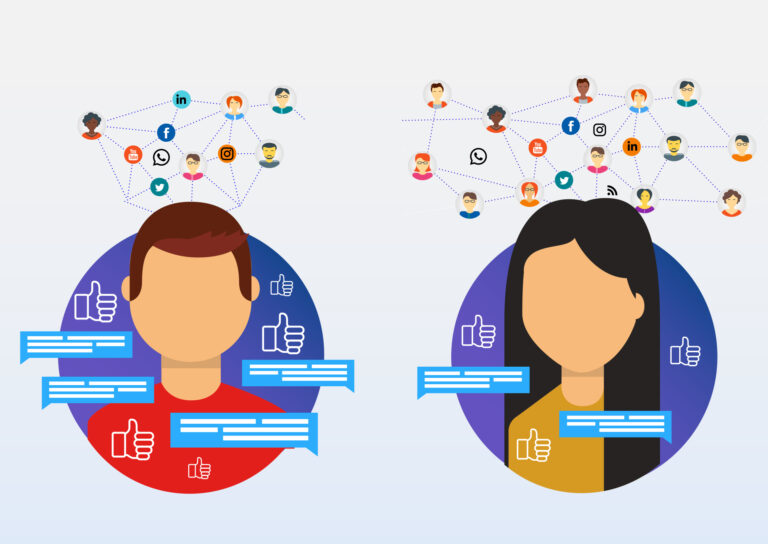It’s the last week before the midterms, and the countdown has officially begun. All across the US, citizens will be (or already are) voting for their Congress representatives. The current midterms are already bringing a higher-than-expected voter turnout, and might even break the 2018 midterms’ impressive record in this area.
In a previous Cyabra blog post, we’ve discussed the different ways in which disinformation, misinformation and mal-information can affect us as voters, and how to be on the lookout for those trying to interfere with election results.
Now, with midterms literally around the corner, our analyst team at Cyabra was able to uncover and identify the largest fake topics (meaning disinformation and misinformation campaigns) discussed on social networks regarding the midterms.
New Topics, Old News
Claims of election fraud are nothing new in any democratic country. In most cases, and in most countries, they are proven false. But despite being repeatedly debunked, election frauds are exactly the type of conspiracy theory that always simmers under the surface, waiting patiently for the next election.
Accusations of elections fraud were made by former president Donald Trump after losing the 2020 elections, and while those claims were disproved long ago, they are still repeated on social media, and expanded with the upcoming midterms.

Cyabra found 11,741 profiles on Twitter that used the hashtags #ElectionsFraud, #CoverUp, #StolenElection and #2000Mules in the last month. The last hashtag, #2000Mules, refers to a 2022 documentary movie (and a book that followed) that supposedly proves widespread election fraud in the 2000 elections, but was debunked, which led to IMDB categorizing it as “fantasy” in addition to “documentary”. Most of the disinformation spreaders were authentic profiles.

Cross-Country, Cross-Platform
While the previously mentioned debates revolved or at least referred to the 2000 elections, in the last month Cyabra also detected 700 profiles engaging just with the hashtag #electionfraud, claiming that they simply don’t and won’t trust the election’s results. Posts containing those hashtags reached 2,484,000 profiles on Twitter.
Another community of disinformation spreaders was uncovered on TikTok, where many profiles were spreading false claims about the current election, with the purpose of disrupting the voting process. Some of them presented ads that announced an extended voting period, while others warned of the election committee using social media accounts for voter verification. Both claims were, of course, false.
When Local News Peak National Interest
At the beginning of October, news sites reported that 30,000 voter registration notices were sent to Colorado residents that are not citizens (and therefore do not have the right to vote in the midterms). The reason turned out to be a clerical error in the Colorado voter database, but some of the profiles that participated in the midterms debates declared the mistake part of a conspiracy, a coordinated effort by Democrats to get non-citizens to vote.
Another state that found itself facing heavy scrutiny just before the midterm elections was Wisconsin, where false rumors regarding the 2020 elections started circling: defects in voting machines, ballot boxes missing, votes disqualified due to the use of Sharpie pens, voting machines connected to a left-wing NGO, and more. All those claims tried to prove the elections in Wisconsin have been rigged, and are being rigged again. Those rumors spread so widely that even Dominion Voting Machines (remember them, we’ll get back to that later) were pushed to publish a public disclaimer regarding those claims.
Only 158 profiles participated in the online discourse regarding Wisconsin and the voting machines, but the harmful content they were spreading reached 826,000 profiles.

Are We (Finally) Sick of Disinformation?
A popular topic in midterms social discourse was Dominion, the widely used voting machines, which have been demonstrated as reliable both in the US and in Canada. 1,208 profiles discussed the machines on social, but unlike what Cyabra’s team encountered with similar events in the past, this time the discussions were not led just by the disinformation spreaders.
Cyabra uncovered a divided discourse: while many profiles proclaimed their distrust of the voting machine and the voting system in general, many others argued that the wariness of the Dominion machines was based on lies, which were exposed and quashed long ago.
The arguments caused the topic to trend even further, and Cyabra’s analysis found that midterm posts containing the word Dominion reached over 42 million profiles (!)


Another interesting discovery about the Dominion topic was that the community of disinformation debunkers was just as large as the disinformation spreaders, revealing the beginning of a new trend: social media users are showing more and more commitment to the fight against disinformation.
Until very recently, disinformation debunking was left to the experts: scientists, doctors, and sometimes news reporters. But with the easy access and free flow of information on the web, uncovering disinformation became so accessible that anyone can pick up the reins, do the research, and join the fight. Entwined with the growing awareness of fake profiles polluting social networks, this new reality might just bring with it a cleaner and more honest social media.
Here at Cyabra, we’re looking forward to that day.
Fear You’re Interacting With a Fake Profile? Ask Cyabra
If you suspect an inauthentic profile is spreading disinformation on social media, tag us on X or LinkedIn, and we’ll be happy to check and let you know if this profile is fake or real. Our mission is to uncover the good, bad and fake of social media, and we’re always delighted to help.


